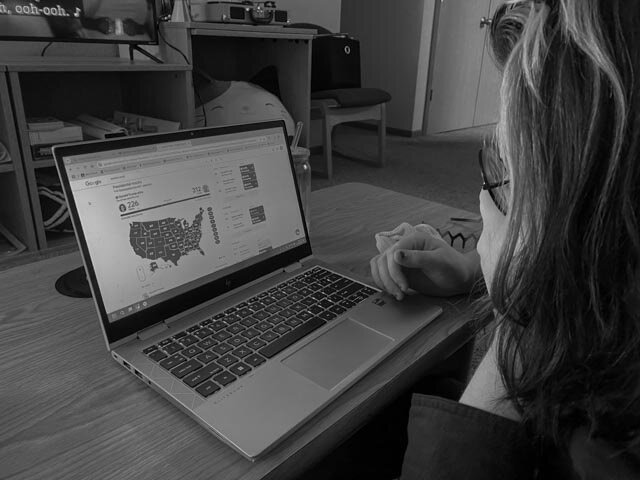In their presentation, The Perils of Fake Pearls: The Toll of Fast Fashion, Winona State University students Madeline Mohan and Alyssa Neistadt delved deep into the world of fast fashion and its economic and environmental impacts.
Mohan, a fourth-year business administration major, and Neistadt, a fourth-year business administrator major, were part of the “Going Green: Sustainable Business and Culture in Scotland” study abroad in June 2024. For their independent study, they chose to investigate the world of fast fashion.
Mohan defined fast fashion as ‘creating clothing at extremely fast rates with little regard for excessive production or waste.’
Fast fashion creates negative impacts environmentally, economically, and socially. Remake’s Fashion Accountability Report scores fashion companies based on several factors, including environmental impacts. The highest scoring company, Everlane, scored 40/150, a failing grade.
The process of making these garments, and then disposing of them raises serious environmental concerns. Fast fashion often relies on synthetic fibers, like polyester, which when washed leach microplastics into our water.
Many fast fashion companies rely on labor that is unethical and unsafe for workers. Factory workers are often paid per garment, rather than a flat rate. This coupled with the harsh chemicals and unregulated working conditions puts workers’ lives at risk and can lead to long-term physical and mental strain.
Neistadt was inspired by the impacts seemingly small purchases can have on millions of people and the environment.
“Fast fashion is the perfect example of how our purchasing power hurts people we’ve never met, and the clothes on our backs are a powerful testament to the conditions we’ll resign others to in pursuit of our own vanity.” Neistadt said.
Small purchases not only impact the environment, but also millions of others around the world. The solution Mohan and Neistadt presented was to confront consumer habits.
“Confronting your consumer habits means thinking about how often you are shopping, is it a want or a need, and is this something I see myself wearing for a long time,” Mohan said. “Also thinking about the types of fibers your buying, and can [if you can] buy this somewhere second hand.”
Lara Craft, Ph.D., a professor in the college of business, was the professor for the study abroad course. She enjoyed that the course allowed students to expand upon their learning outside of the classroom.
“In this case, Alyssa and Madeline had a natural interest in fast fashion and the impact of sustainability within that industry.” Craft said.
Mohan and Neistadt drew to light the harsh world of fast fashion, and the consequences of consumers actions not only on the environment, but also on people across the world.








































